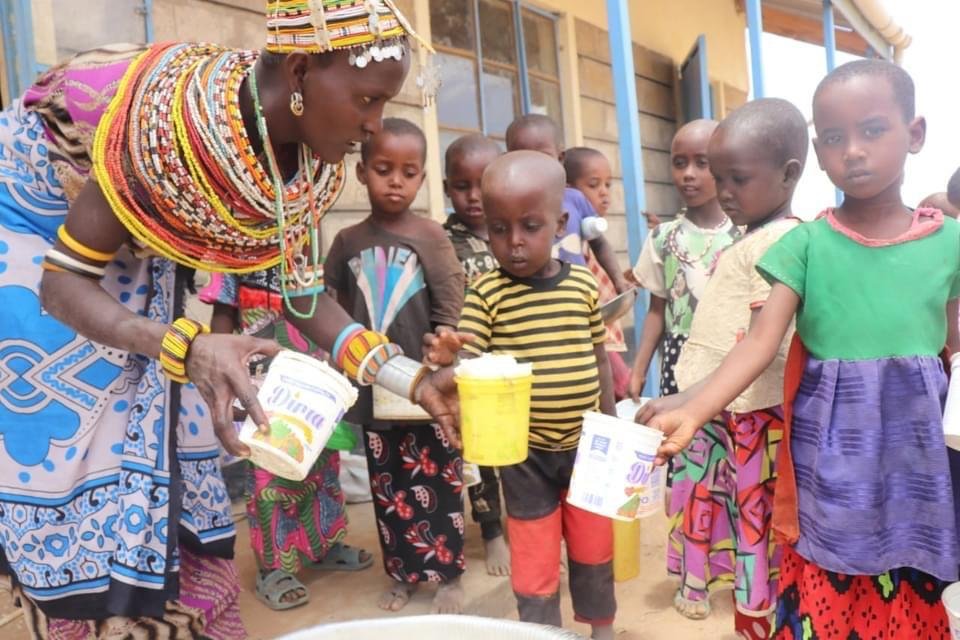
Perspectives on the current suffering in Marsabit County, Kenya by student intern, Antoine Marc

I first heard about KDEF from my English teacher, a good friend of Cofounder Sarah Hadden. When Sarah described the conditions she encountered in Kenya to me in striking detail on a Zoom call, I started to understand the severity of the situation and KDEF’s tremendous efforts to make it better.
While working for KDEF I got the chance to host an Instagram Live, speaking with some of the students. It was eye-opening to hear their personal stories. From daily 10 miles morning treks to school to not being able to study after daylight hours due to the dearth of lamps. Our newly built library and dormitories changed their lives and the joy and hope they radiated was truly heartwarming.
My work immediately felt more significant after having made this face-to-face connection. However, I still found myself having a hard time grasping what the people living in Marsabit county were actually going through on a day-to-day basis. A report from NTV has helped me (and others) to gain a perspective of their everyday struggles.
Named “Graves of Drought”, the report shows the grim reality of the people living in Illeret, Kenya. Livestock cadavers are conspicuous signs of hardship, women don’t have enough breast milk to feed their newborns and the nearest emergency health center is a two-day car ride away.
It is tradition here to build a new house for good omen if your child dies. The old hut which gets left behind, however, will never heal the scars caused by the seemingly never-ending drought. Though the government occasionally brings food, it’s nowhere near enough. They are reluctant to release drought reports as it would shine a bad light on them, essentially letting down the same people who elected them.
Children face a massive challenge to feed themselves. Their survival is only hanging by a thread. As a last resort, every afternoon they pilger to the nearest swamp, sometimes eating right out of the dirty polluted water without priorly harvesting the reed roots. Others can be seen dragging water collected for domestic use right through the mud, unaware of the diseases they could contract.

If they find the strength, the children walk all the way to lake Turkana, begging fishermen for work in return for some fish bones. Only few get lucky and others have to return back to their families empty-handed. It is child labor at its finest, but no one is complaining since this is the best possible meal families can find here.
A couple of years ago in Illeret, scientists made a significant discovery in what is seen as one of the oldest footprints of human ancestors ever found. Sadly, 1.5 million years later, nothing much has changed in terms of living standards. People are still fighting for survival. The scarce resources have caused conflicts amongst neighboring communities which have escalated into civil wars. This primitive way of living is a result of the government giving up on the people most in need.
To keep their traditions alive or more so to keep their children distracted from hunger kids get indulged into singing folk songs before they go to sleep. It takes the next morning, waking up with an empty stomach, to get reminded of the situation they are in.
With KDEF we are trying our best to help. I know I will hardly ever really understand what residents of Illeret are going through. Nevertheless, I want to contribute as meaningfully as possible, and I am feeling a strong sympathy for them, which has been growing day by day, as I’m more and more exposed to their struggles.
Even though it is just from afar, I am very passionate about making an impact. I find Images of kids close to starvation particularly upsetting. The overcoming feeling of pride when I see them smile in gratitude after being offered a new life in one of our learning centers is, however, priceless. I hope this feeling persists as KDEF is giving more people a new perspective, ultimately improving the lives of entire communties.

